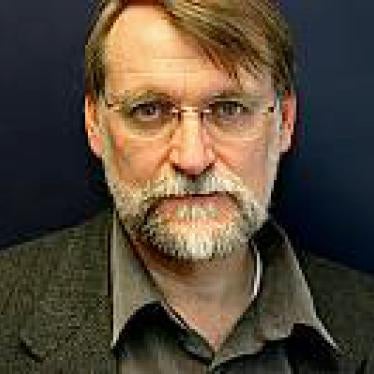Politicians in many well-to-do countries speak in exaggerated terms about being threatened by potential hordes of refugees as they make populist appeals that feed on fears and prejudices. The truth is that the less-developed countries, many of them with significant problems of their own, bear a much heavier burden.
The United Nations refugee agency’s new annual statistical report, “Asylum Trends 2013,” highlights the challenges asylum seekers present to what it characterizes as “industrialized countries."
It shows a 28 percent increase in the number of asylum seekers lodging individual claims in these 44 countries.
While at first glance the 612,700 new asylum applications look like an enormous number and a significant burden, a little perspective is in order.
The report says that 56,400 asylum seekers from Syria lodged claims in 2013.
That’s a big number, but bear in mind that Syria’s Middle Eastern neighbors are hosting more than 2.5 million Syrian refugees.
Even though Germany and the United States rank one and two as the industrialized countries with the highest numbers of new asylum claims last year, their impact hardly compares to a country like Lebanon, which has far fewer resources and is itself shaken by sporadic violence. Last week the number of Syrian refugees in Lebanon hit 1 million. That would be the equivalent of 18 million refugees arriving suddenly in Germany or 73 million arriving in the United States.
Even among the 44 industrialized countries, the statistics can be somewhat misleading unless read carefully. The report counts 44,800 asylum seekers in Turkey. The breakdown? 25,300 Iraqis, 8,700 Afghans, 5,900 Iranians and 1,300 Somalis. What about Syrians? The report counts 108 for whom the UN high commissioner’s office conducted refugee status interviews.
The 800-pound gorilla in the room, of course, is the more than 580,000 Syrian refugees that Turkey also hosts as a group, the same way most of the 15 million refugees living in Africa, the Middle East, and Asia are hosted, and who are not counted in the Asylum Trends report because it counts only people making individual claims.
Absolute numbers, though important, need to be put into context. The Asylum Trends report itself says that measures like the ratio of asylum seekers to population or gross domestic product (GDP) may “more accurately reflect the contributions of a country to host asylum-seekers.”
It points out that Malta, the tiny Mediterranean island state, received the highest number of asylum seekers of any of the 44 industrialized countries when compared to its national population. But the report does not make such comparisons for less-developed countries.
Looked at either from the perspective of absolute numbers or based on absorptive capacity as a factor of GDP and population, the industrialized countries do not bear nearly the burden of a Kenya, Jordan, Thailand or scores of other countries. If the world’s 29 million internally displaced people are also factored into the mix, the relative burden on third-world countries is dramatically higher.
The rich countries could and should do more to share the refugee burden. For example, most European Union countries don’t begin to carry their fair share of refugee resettlement admissions that provide an orderly, safe and legal alternative to irregular journeys by boat and across borders.
For 2012, the last year for which statistics are available, EU countries resettling fewer than 1,000 refugees included the United Kingdom and Finland; fewer than 500 included Germany, the Netherlands and Denmark; France and Ireland took fewer than 100; Belgium, Greece, Hungary, Iceland and Italy took fewer than 10 each, and 14 EU countries had no regular resettlement programs at all. Some, notably Germany, have recently made more significant resettlement offers for Syrian refugees.
The richest countries too often lead by negative example: rather than take in asylum seekers in rickety boats who often lack legal alternatives to seek asylum, the United States and Australia interdict their boats and divert them to poorer countries with less capacity to protect them. EU states often appear more concerned about securing external borders or avoiding responsibility for disembarking boat migrants in the Mediterranean than saving lives.
Ultimately, the numbers only tell a partial story. The real turnaround will occur when people in the 44 industrialized countries come to regard these 612,700 people not as numbers, but as real human beings, each with his or her own story and reasons for seeking protection.








